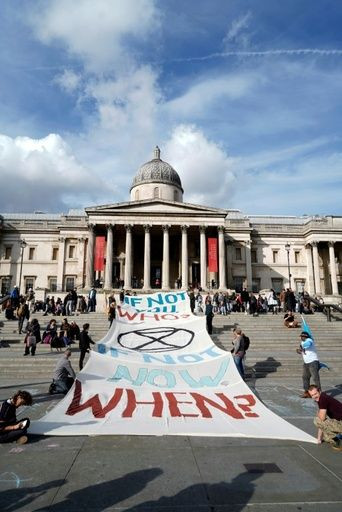Climate Change: Scientists Warn Of 'Catastrophic Threat' That Humanity Could Possibly Face

More than 11,000 scientists warned that our world would face “untold suffering due to the climate crisis” if we continue to live the same way.
“Scientists have a moral obligation to clearly warn humanity of any catastrophic threat and to tell it like it is. On the basis of this obligation and the graphical indicators presented below, we declare, with more than 11,000 scientist signatories from around the world, clearly and unequivocally that planet Earth is facing a climate emergency,” said the statement published by scientists in the journal BioScience, to mark the 40th anniversary of the first world climate conference, held in Geneva in 1979.
More than 11,000 scientists from 150 nations have endorsed this report.
In a declaration published Tuesday in the journal BioScience, a collection of 11,000 scientists put forth six "critical and interrelated steps" to reduce the effects of climate change https://t.co/0sZcFgNAY2 @NebulousNikki
— CBC News (@CBCNews) November 5, 2019
According to them, the crisis has arrived and is accelerating faster than expected, threatening the natural ecosystems and fate of humanity. Despite all the warnings from global assemblies and scientists, the greenhouse emissions are still rising rapidly putting the earth’s climate at risk.
“These climate chain reactions could cause significant disruptions to ecosystems, society, and economies, potentially making large areas of Earth uninhabitable,” the statement said.
The scientists criticized the policymakers for failing to take any action against climate change as people continue to conduct business as usual without addressing the predicament.
"Posterity will remember them badly for dismissing climate change as a serious threat to our civilization," Phoebe Barnard, one of the lead authors of the report and the chief science and policy officer at the Conservation Biology Institute, a nonprofit science group, told CNN, noting that these policymakers had no more wiggle room left.
The scientists identified a series of urgently needed actions in order to tackle the problem. They included transitioning away from fossil fuels, reducing emissions of climate pollutants like methane, soot, and HFCs, protecting and restoring the earth’s ecosystems, reducing consumption of animal products and avoiding economic growth to dictate the overexploitation of ecosystems.
“Mitigating and adapting to climate change while honoring the diversity of humans entails major transformations in the ways our global society functions and interacts with natural ecosystems,” the scientists concluded.
According to Barnard, the changes that are needed to be undertaken should be seen as a way of transforming things and not as a sacrifice.
© Copyright IBTimes 2025. All rights reserved.





















